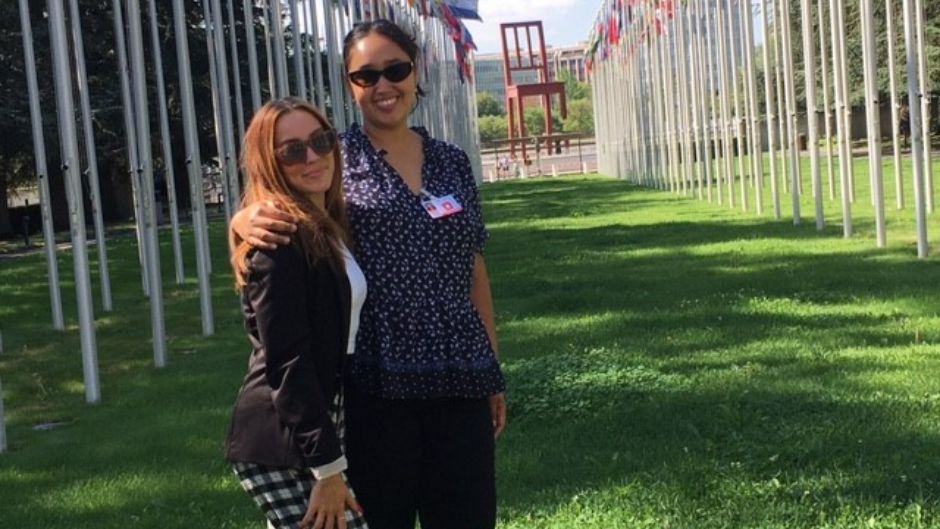The University of Miami School of Law is known to have one of the largest faculties that teach or do scholarly research in international law of any American law school. Many of these faculty members have taken their expertise and created opportunities for law students to do hands-on work in international law via the United Nations.
Human Rights and the U.N.
The Human Rights Clinic, part of Miami Law's Human Rights Program, works for the promotion of social and economic justice globally and in the U.S. Students gain firsthand experience in cutting-edge human rights litigation and advocacy on the international level and engage with the United Nations, Inter-American Court and Commission on Human Rights, European Court of Human Rights, African Court on Human and Peoples' Rights, and other tribunals. U.N. Advocacy in 2022-23 included:
Via U.N. Advocacy, Clinic Underscores the Need for Gender-Sensitive Drug Treatment
Environmental Justice Advocacy and the U.N.
Through the law school's Environmental Law Program, students have the opportunity to earn credit advocating for climate action and attending the United Nations COP Climate Change Conferences. To prepare to attend the conferences, students study the courses "Climate Change Law and Policy" in the fall and "U.N. Climate Negotiations" in the spring. Professor Jessica Owley teaches both courses.
Students have had the opportunity to engage in the annual negotiations of the United Nations Framework Convention on Climate Change (UNFCCC) and have attended Madrid in 2019 and Egypt in 2022 and will also attend COP 28 in Dubai, United Arab Emirates, in fall 2023. U.N. Advocacy Highlights from 2022-23 include:
Miami Law Students Have Front Seat at COP27 in Egypt
Student Travels to South Korea for U.N. Meetings on Global Climate Technology
Law of the Sea and the U.N.
Professor Bernard Oxman is the Faculty Chair of the Law School's Master of Laws Program in Maritime Law and has held prominent positions on U.N. courts and tribunals. He is the only American ever appointed to serve as judge ad hoc of both the International Court of Justice and the International Tribunal for the Law of the Sea.
The International Court of Justice is one of the six principal organs of the United Nations, which settles disputes between states following international law and gives advisory opinions on international legal issues. The International Tribunal for the Law of the Sea is an intergovernmental organization created by the mandate of the Third United Nations Conference on the Law of the Sea. Oxman represented the Third United Nations Conference on the Law of the Sea and chaired the English Language Group of the Conference Drafting Committee that prepared the United Nations Convention on the Law of the Sea.
In 2022, Professor Oxman participated in a workshop in connection with the 40th anniversary of the conclusion of the United Nations Convention on the Law of the Sea and published the article "The Fortieth Anniversary of the United Nations Convention on the Law of the Sea" in Volume 99 of International Law Studies.
More on international law at Miami Law

